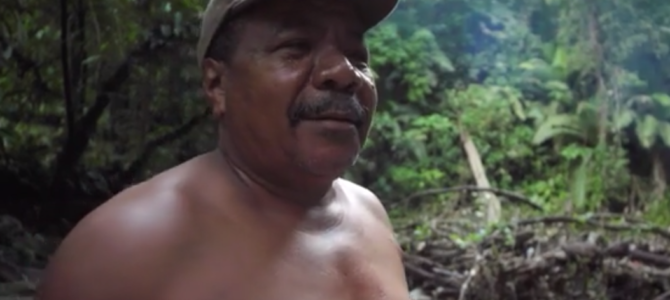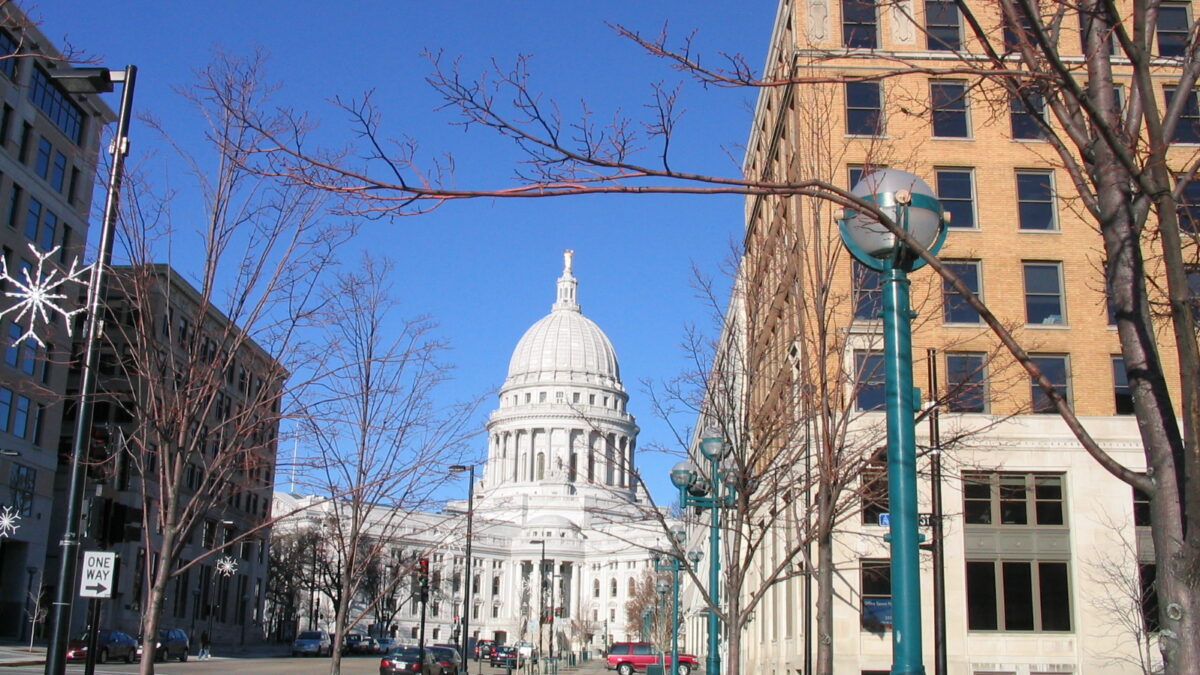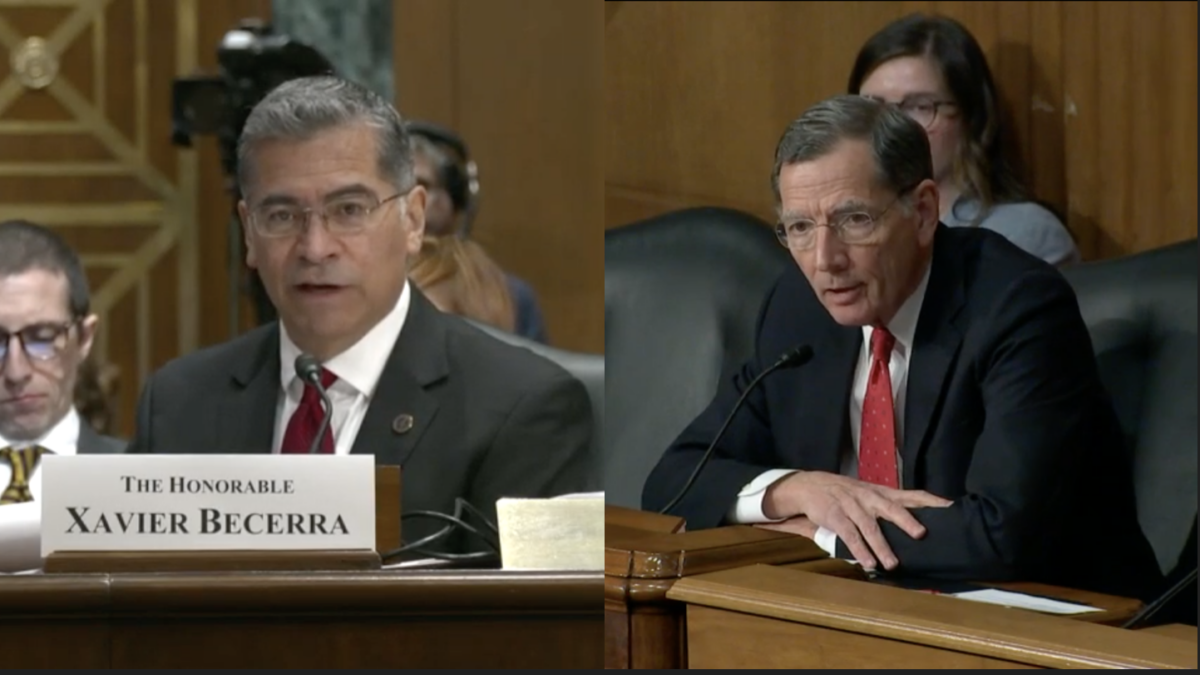
In a misguided attempt to find an edgy new angle on the border crisis, CBS aired a documentary segment Sunday that casts a sympathetic light on a pair of coyotes, or human smugglers, in Panama.
Under the headline, “The human coyotes helping migrants survive Central America’s grueling Darien Gap jungle,” CBS portrays two men, Gonzalez Jimenez and his smuggling partner Augustin, as humanitarians just trying to help get migrants safely through a dangerous stretch of jungle:
Emerson Gonzalez Jimenez said he typically charges $700 to get people safely from Capurgana, Colombia, to Bajo Chiquito, Panama. He said he sometimes makes exceptions and lowers the cost, especially if he encounters migrants who were abandoned by their group. “Many get lost. They lose the path,” said Gonzalez Jimenez.
“I helped a lot of people, particularly women with children,” he said. “Because many have passed through here and not made it.”
Viewers must take Mr. Gonzalez Jimenez at his word: there are no women and children featured in the CBS segment, and in fact no migrants at all who are interviewed on camera.
The piece is the first chapter in a new CBS series called, “Border Business: Inside Immigration,” with forthcoming chapters on each stage of migrants’ journey to the U.S. border, profiling the people who help them along the way—all of whom, it seems, will be portrayed as humanitarians. The next chapter, “the rest stop,” is set in Tapachula, Mexico, on the border with Guatemala, where migrants rest and prepare for the trip through Mexico. “For locals like Concepción González Ramírez, it’s a business opportunity—as well as, in her case, something of a calling.”
Other chapters include, “the activist,” “the lawyer,” and “the smuggler.” If the first chapter is any indication, these profiles will be deeply uncritical, fawning portraits of ostensibly humanitarian folks who are just trying to help out the poor migrants trying to get to the U.S.
The human coyotes helping migrants survive Central America's grueling Darien Gap jungle https://t.co/FOQV5y67CC pic.twitter.com/5bN5gUFIbL
— CBS News (@CBSNews) March 31, 2019
For example, at no point in the CBS segment on the coyotes does the reporter ask about what happens when someone falls behind. Amid footage of the CBS crew struggling through dense jungle, up steep, muddy paths, and over fast-flowing rivers, all while wearing heavy packs, the subject of what happens to those who get injured, fall ill, or otherwise can’t go on never comes up. Instead, we’re led to believe that Gonzalez Jimenez and his trusty pal Augustin are guardian angels of sorts, protecting migrants from all the dangers of the jungle, come what may.
But in reality, sometimes migrants, like anyone traveling long distances on foot, get injured or fall ill and can’t go on. And anyone with a passing familiarity with human smuggling knows what happens when a migrant can’t go on: they get left behind by the coyote. In most cases, they’re left for dead.
But who knows, maybe CBS found the only two coyotes with hearts of gold, who never leave a migrant behind.
In Reality, Human Smuggling Is A Dark And Dangerous Business
It’s unclear, aside from the dramatic setting, why the network chose a remote stretch of jungle in Panama to begin its series, since the vast majority of migrants now arriving on the U.S. border begin their journey in Guatemala, Honduras, or El Salvador, and most of them are traveling on commercial bus lines arranged by smuggling networks in Mexico.
CBS at least acknowledges that it’s possible to die along the route: “Decaying corpses of those who attempted to pass are scattered throughout the jungle, along with articles of tattered clothing and used kitchenware.”
But you know where else you can find all those things? Brooks County, Texas, where migrants routinely get lost on vast ranch lands while trying to hike around Border Patrol checkpoints. Over the past decade, ranchers and sheriff’s deputies in Brooks County have found about 650 corpses of migrants who were abandoned by coyotes when they fell behind or couldn’t go on.
Getting left behind is of course only one of the very bad things that can befall migrants traveling with coyotes. Sexual assault, whether in stash houses along the U.S.-Mexico border or at “rape trees” on ranch land in Texas, is a constant feature of the migrant-smuggling black market. So is kidnapping and extortion, none of which comes up in the first chapter of CBS’s documentary.
Maybe later episodes will grapple with the brutal reality of human smuggling, but don’t hold your breath. Among liberal activists and their allies in the mainstream media, there’s a reluctance to acknowledge the darker side of the migrant crisis—or even admit that it’s a crisis at all.
Liberals Can’t Admit There’s A Crisis At The Border
Even when the media admits that migrant smuggling is a big business, it portrays the business as a reaction to the Trump administration’s border policies, instead of a natural response to policies put in place by the Obama administration and subsequent court rulings about how long U.S. authorities can detain families and children who cross the border illegally.
There are, to be fair, a few mainstream outlets and reporters doing honest work on the border crisis, but they face an establishment of editors, liberal activists, and Democratic elected officials who have a vested interest in portraying the surge of migrant families from Central America as something other than a crisis.
Some Democrats have even gone so far as to suggest that the recent mass releases of migrant families in El Paso and the Rio Grande Valley by Immigration and Customs Enforcement is a staged affair, designed to make the situation appear worse than it really is. Last week, when images of migrant families being held behind barbed-wire fencing under a bridge in El Paso circulated widely, House Homeland Security Committee Chairman Bennie Thompson (D-Miss.), blamed Trump, saying, “the administration is using propaganda to further its anti-immigration agenda.”
Meanwhile, CBS is profiling the good work of a pair of Panamanian smugglers, just two old friends trying to do right by the migrants they meet in the jungle.









